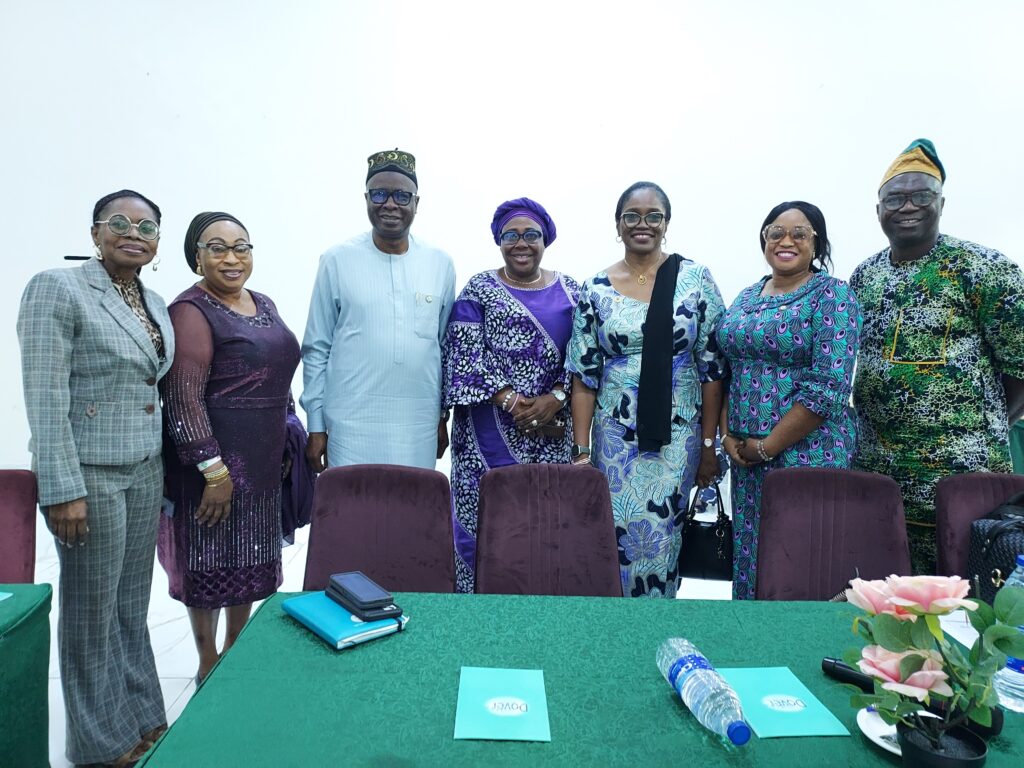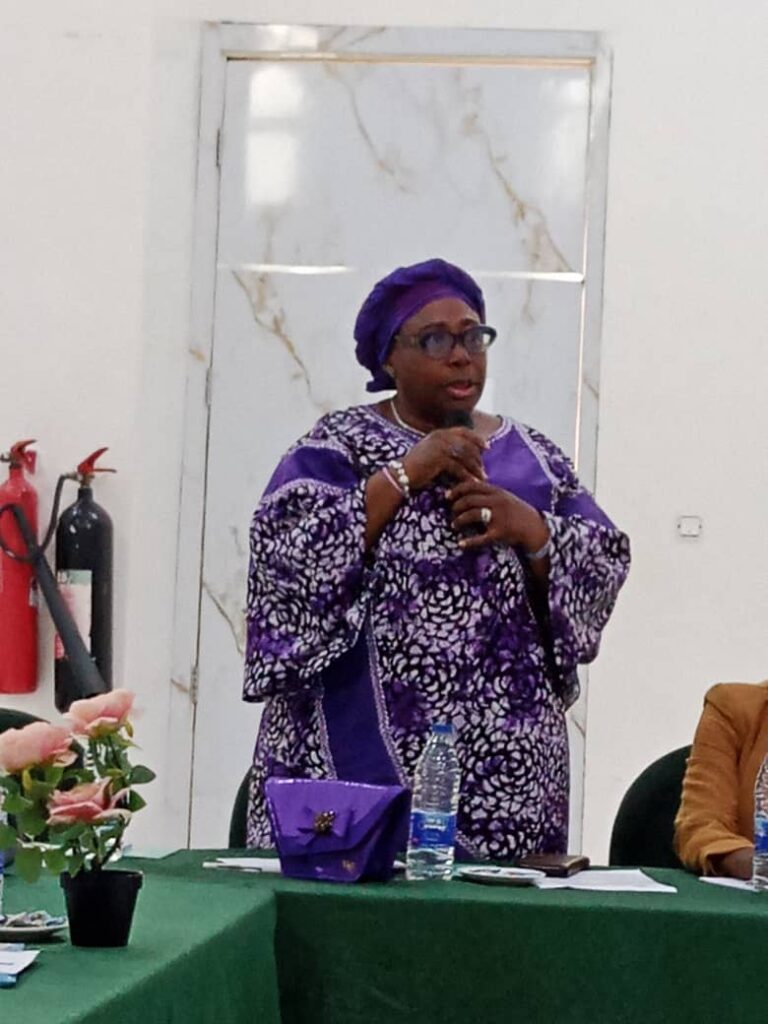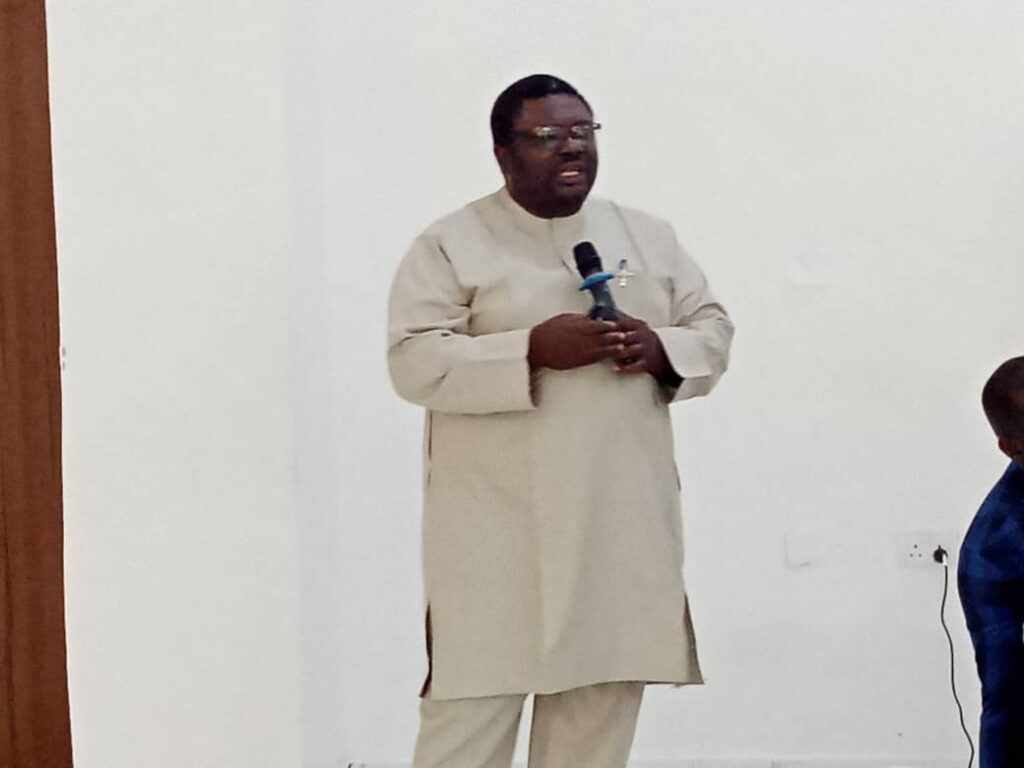Civil society, government officials and UNICEF call for urgent action as Stunting, Wasting and undernutrition surge in Nigeria’s economic hub
By Bunmi Yekini

Lagos may be Nigeria’s commercial nerve centre and a self-styled “Centre of Excellence,” but new data paints a troubling picture: the state is grappling with a sharp rise in child malnutrition.
At a breakfast meeting held on Thursday at Dover Hotel, Ikeja, civil society leaders, government officials and international partners gathered to chart a path forward through the adoption of the Child Nutrition Fund (CNF) and the implementation of six-month paid maternity leave.
The event, organized by the Civil Society Scaling Up Nutrition in Nigeria (CS-SUNN), brought together civil society organization, UNICEF, permanent secretaries and representatives from ministries of health, education, agriculture, environment, women affairs, youth, and social development, as well as development partners.

In her welcome address, Mrs. Modupe Olayinka Ojo, Permanent Secretary, Ministry of Economic Planning & Budget and Chair of the Lagos State Committee on Food and Nutrition, did not mince words about the gravity of the crisis.
“I will like to start by expressing my disappointment in the result of Lagos shown. It is very bad,” she said, pointing to the latest National Demographic and Health Survey (NDHS) which highlights increases in wasting and underweight among children.
Using vivid personal anecdotes, Ojo underscored how nutrition, or the lack of it, affects children’s eyesight, brain development, and overall learning outcomes.
“For any child that will study in school, that will see clearly, that will be able to process whatever they are seeing from the board, they need very strong eyesight. So it means Vitamin A becomes critical. If a child has not been fed properly from the start, that limitation could affect their entire future.”

A Shocking Rise in Wasting
Presenting the stark figures, Okoronkwo Sunday, Executive Secretary of CS-SUNN, revealed that Lagos State’s malnutrition indices have worsened over the past five years.
“The NDHS 2023/2024 showed wasting in Lagos rose from 6.4% in 2018 to 13.4% today, an over 109% increase. Underweight also went up by 79%, while stunting remained stubborn at 17.3%. This is not good data. What it means is that malnutrition in Lagos is rising, and it’s a threat to our people, our economy, and our future.”
Sunday disclosed that persistent advocacy recently led Governor Babajide Sanwo-Olu to approve the state’s ₦100 million commitment to the Child Nutrition Fund (CNF), a mechanism where UNICEF matches state investment one-for-one to procure essential nutrition commodities.
“For us, that’s a huge win because shortly, there will be lifesaving commodities in our Primary Health Centres (PHCs). It also means nutrition will finally have a stronger seat at the table,” he said.
Why the First 1,000 Days Matter
Stakeholders emphasized the critical “first 1,000 days”, from conception to age two, as the window to prevent irreversible malnutrition.
“If a child becomes stunted after age two, it becomes impossible to reverse,” Sunday explained. “That’s why Lagos must go beyond zero to one year and expand interventions up to five years.”
Dr. Kemi Ogunyemi, Special Adviser to the Lagos State Governor on Health, stressed that while the government must provide commodities, education is equally vital.
“You can increase funding, but if people don’t know what to feed their children, nothing will change. Even wealthy parents give their children junk food out of convenience. We must create awareness in schools and communities that poor nutrition damages brain cells and limits children’s learning capacity.”
Calls for Nutrition Units in Ministries
Permanent Secretaries at the meeting pledged to integrate nutrition into their ministries’ operations.
Pharm. (Mrs) Toyin Oke-Osanyintolu, PS Ministry of Youth & Social Development, said her ministry would introduce parenting classes and create a dedicated nutrition unit.
“The critical age group is zero to two. By the time they get to school, their preferences are already set. So we must focus on parents, because what they teach their children to eat, they will continue to eat.”
Similarly, Mrs. Abiola Dokunmu Adegbite, PS Ministry of Basic & Secondary Education, committed to tightening school food regulations.
“In many schools you only see noodles, Jollof rice and stew. Hardly any vegetables. Nutrition affects not just physical growth but also brain development. We want well-rounded children, emotionally, socially, and academically. That is why collaboration with agriculture and education is crucial.”
UNICEF’s Global Push
Boluwatife Ogunjimi, UNICEF Nutrition Data Officer, explained how the Child Nutrition Fund works.
“The CNF is a catalytic financing mechanism. Whatever Lagos invests, UNICEF matches it one-for-one. This doubles the pool for lifesaving commodities like micronutrient supplements. It also strengthens local capacity so that when donors exit, the state can sustain nutrition financing.”
He added that despite 86% of Lagos births being supported by skilled health workers, only 14% of mothers initiate breastfeeding early.
“That gap tells us there is a huge opportunity to improve maternal and child nutrition if we act now.”
The Way Forward
For Lagos, the challenge is not just about resources but also coordination and awareness. As Ojo reminded the gathering, malnutrition is not an abstract issue but one that limits the future potential of children.
“If Lagos is the Centre of Excellence, then our nutrition indices should reflect it. By next year’s budget cycle, let us ensure that nutrition is a strategic priority across all ministries.”
With the CNF approved, six-month maternity leave under consideration, and commitments from multiple ministries, stakeholders say Lagos now has a chance to turn the tide on child malnutrition, if words are matched with sustained action.
